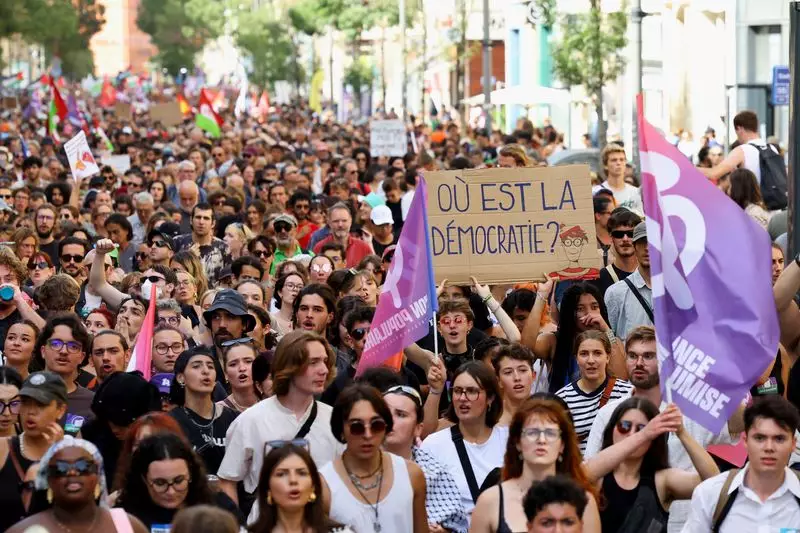President Emmanuel Macron’s decision to appoint centre-right Michel Barnier as prime minister has sparked protests across France. Barnier, a conservative figure and the EU’s former Brexit negotiator, faces the challenge of leading a government without a clear majority. This poses significant obstacles as he seeks to implement reforms and address the country’s budgetary concerns.
Left-wing parties, particularly the far-left France Unbowed (LFI) party, have accused Macron of undermining democracy by appointing Barnier instead of the candidate from the New Popular Front (NFP) alliance, which won the July elections. This has led to widespread dissatisfaction among the French populace, with a majority believing that Macron has ignored the election results and essentially “stolen” them.
In response to Macron’s appointment of Barnier, various left-wing party leaders, unions, and student bodies have called for mass protests across France. The LFI party alone has organized 130 protests nationwide, signaling a deep-seated discontent with the current political situation in the country. This mobilization highlights the growing divide between the government and its citizens.
Barnier’s government is on shaky ground, given its lack of a clear majority in parliament. Both the NFP and the far-right National Rally (RN) hold the potential to collaborate and oust the prime minister through a no-confidence vote. The RN, in particular, has positioned itself as the “kingmaker” in this scenario, setting conditions for its support and closely monitoring Barnier’s actions.
The protests in France against Macron’s appointment of Michel Barnier as prime minister reflect a broader crisis of confidence in the government and the political establishment. The accusations of election fraud and the threat of a no-confidence vote underscore the deep divisions within French society. As Barnier navigates the challenges of forming a government and addressing pressing issues such as the 2025 budget, the future of Macron’s administration remains uncertain.

